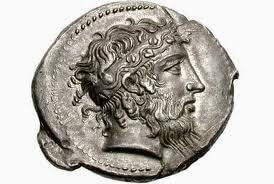You are hanging around in NYC when a person approaches you.
"Leaving the bald people aside, I can bet a hundred bucks that there are two people living in NYC who have same number of hairs on their heads," he says to you.
You say that you will take the bet. After talking to the man for a couple of minutes, you realize that you have lost the bet.
What did the person say to you that proved his statement ?
This problem can be best solved using the pigeonhole principle.
The argument will go like this:
Assume that all the non-bald people in NYC have different number of hairs on their head. The population is about 9 million and let us assume that there are 8 million among them who are not bald.
Now, those 8 million people need to have different number of hairs. On an average, people have just 100, 000 hairs on their head. If we keep on assuming that there is someone with just one hair, someone with two, someone with three and so on, there will be 7, 900, 00 other people left who will have more than 100, 000 hairs on their head and need different number of hairs.
Now, as per this assumption, if we keep increasing one hair for each person, to make everybody hair different in numbers, we will come across someone with 8, 000, 000 hairs. But that is practically impossible (even 1, 000, 000 is impossible). Thus there must be two people who are having same number of hairs.







